Sustainability
1. Sustainably farmed rice
Let's start with the problem: conventional rice farming produces massive amounts of methane, a powerful greenhouse gas that is contributing to climate change.
In fact, beef is the only food responsible for higher global emissions. Shocking, right?!
But we've got good news.
There are some simple farming methods that can dramatically reduce the methane emissions, saving huge amounts of water at the same time.
Our Basmati rice comes from a group of pioneering farmers in Haryana state, India, who have been using these methods since 2019.
Using data collected from their farms (and independently checked) it is possible to calculate the emissions from our rice and compare it to the national average. And the results are amazing...
For the 2022 crop our farms produced 49% lower CO2-equivalent emissions than conventional rice farms. That's a saving of 1.23kg of CO2-eq per kilo of rice!
-
Cutting methane emissions is just one of the many benefits of sustainable rice farming.
And together with millions of farmers around the world, we think it's the future of rice.

2. Decarbonised sea freight
Did you know there's a renewable, carbon neutral fuel for container ships? Nope, neither did we.
But our quest to do things better led us to Goodshipping. We're proud to be the first rice brand in the world to purchase their biofuels for sea freight.
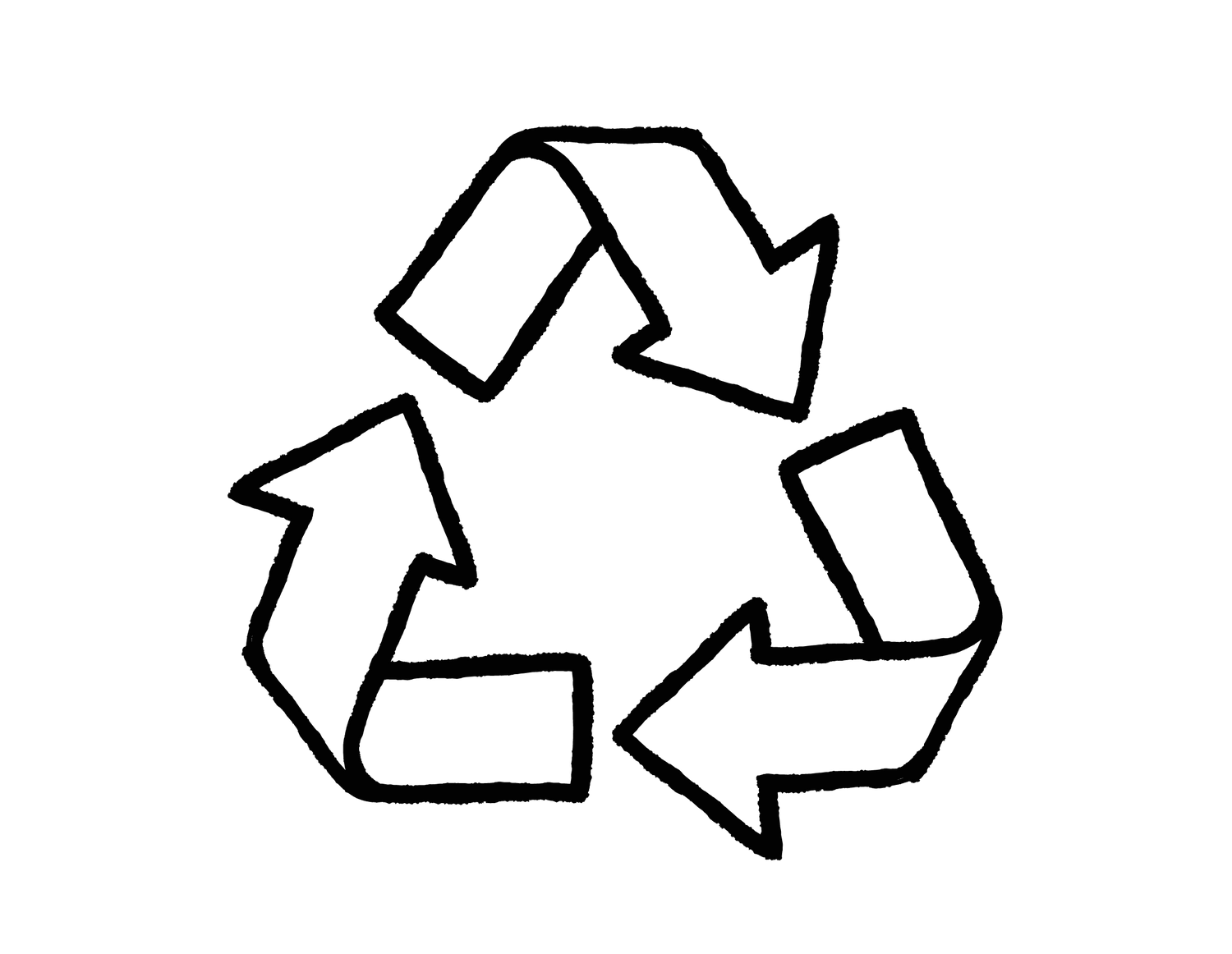
3. No unnecessary plastic packaging
From our innovative dry rice cartons to the tape we secure our deliveries with, we use plastic-free, recyclable packaging wherever possible.
It's rice, done better. But we're not perfect.
We value transparency and we think you probably do too. So here are the most challenging questions we get asked, together with our responses.
Collapsible content
If we care about sustainability why do we use plastic pouches?
Cooked rice is about 50% of the UK market. So, we felt that to fulfil our mission to build demand for sustainably farmed rice we had no choice but to have a cooked rice range.
The cooking process for our cooked rice products requires plastic pouches - it currently isn't possible with plastic-free pouches. we know the reality is that they are part of the plastic waste problem.
It's a problem we will continually look to solve.
Why aren't we fully carbon neutral?
Our focus is on reducing, rather than offsetting, the emissions we're responsible for. That means championing sustainably farmed rice and choosing the low-impact option (like biofuel for sea freight) wherever possible.
If we care about sustainability why are we shipping food from India?
The emissions produced by shipping rice from India to UK (0.16kg CO2-eq per kg of rice) are substantially less than the emissions produced by conventional rice farming (2.50kg CO2-eq per kg of rice).
The UK already eats a lot of Basmati rice. We're not growing the demand for rice, we're trying to shift demand from conventional rice to sustainably farmed rice.
We're also investing in renewable, zero emission fuel for our sea freight to reduce this element of our emissions to zero.
How sustainable are the other ingredients in our cooked rice recipes?
While the greatest impact comes from the rice itself, we haven’t yet measured the environmental footprint of all the other ingredients in our recipes. But we know this matters, and we’re committed to making everything we do more sustainable over time.
By choosing Nice Rice you're showing the industry that sustainably farmed rice is the future.
Are you with us?
- Choosing a selection results in a full page refresh.
- Opens in a new window.



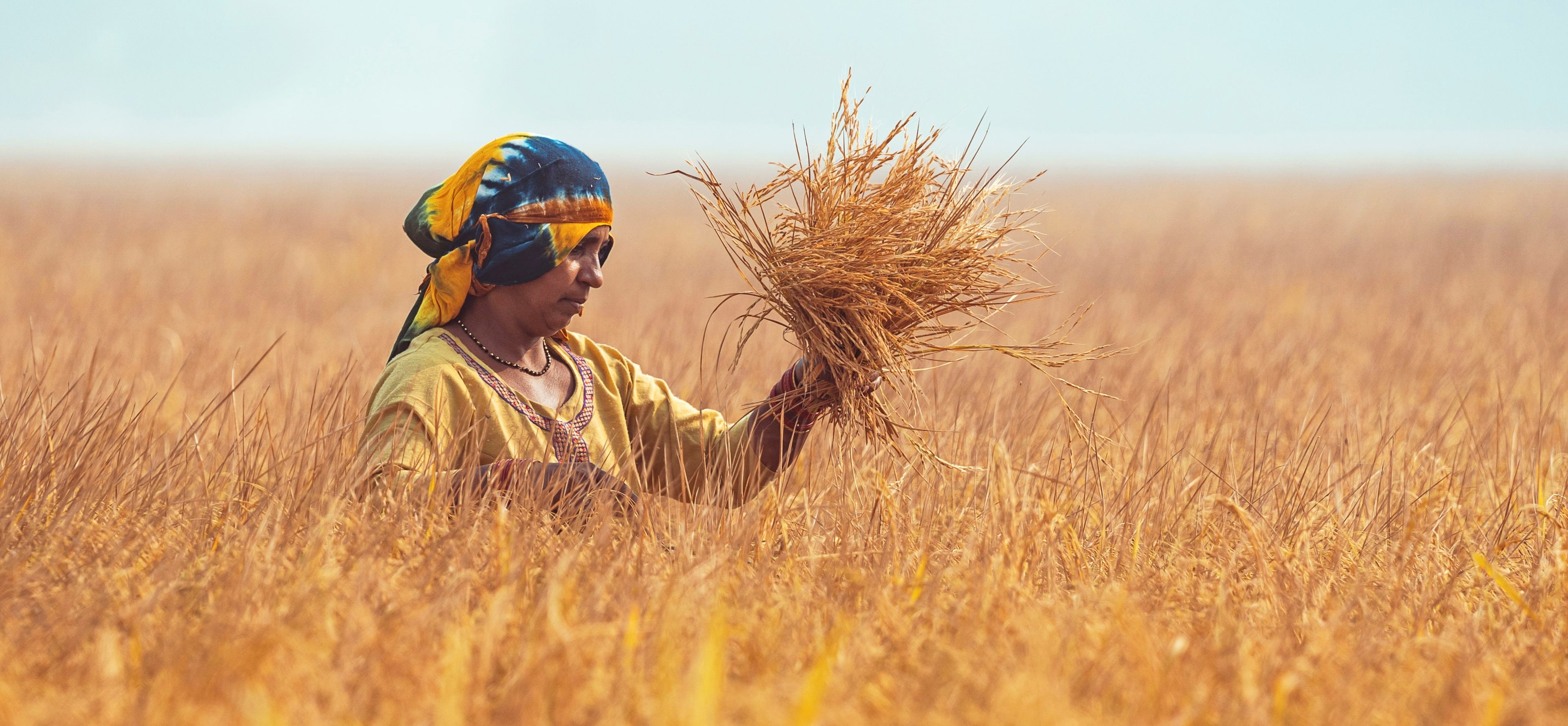
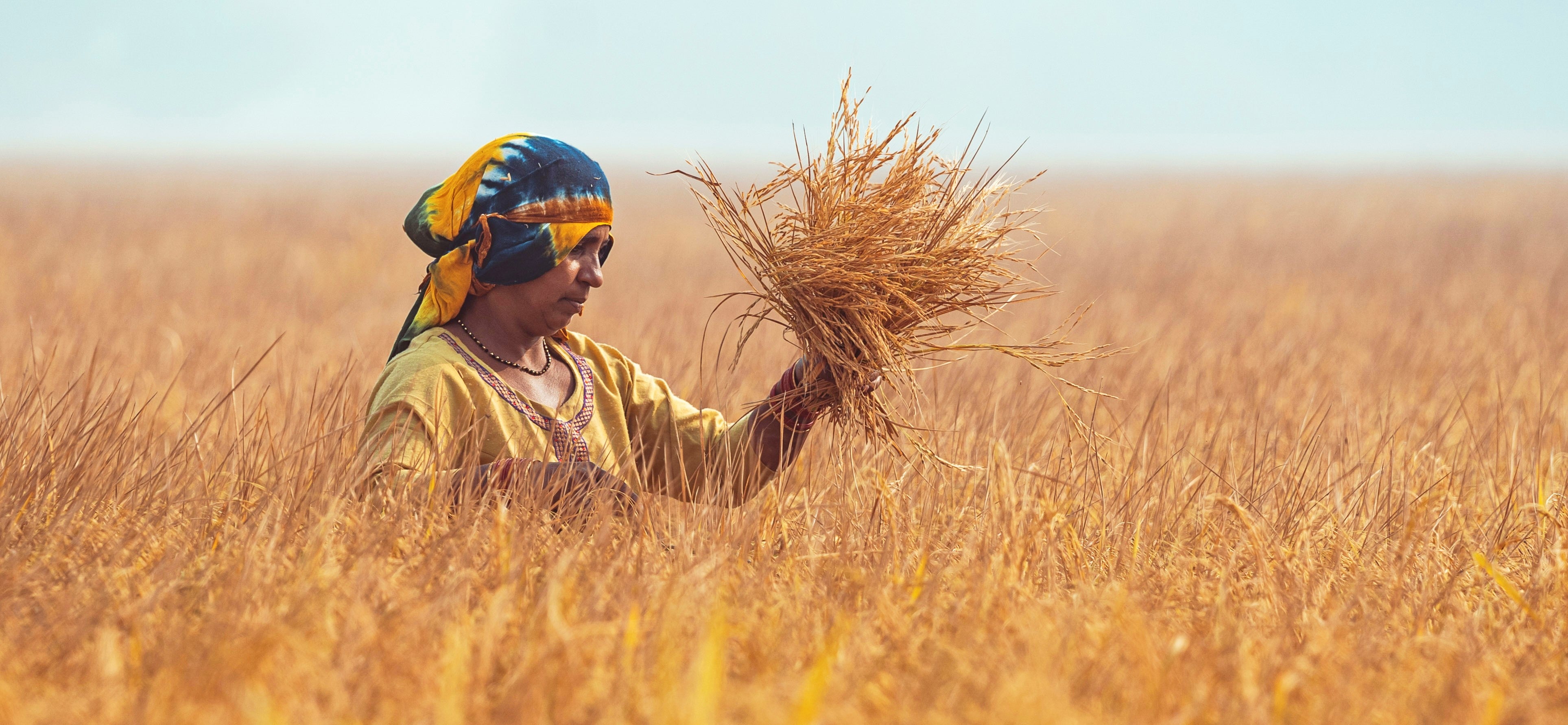
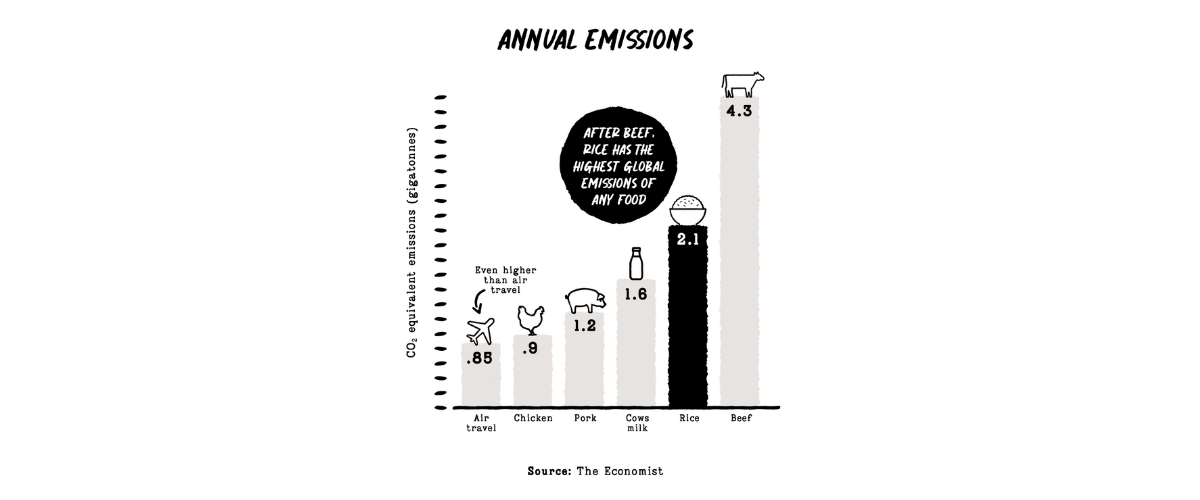
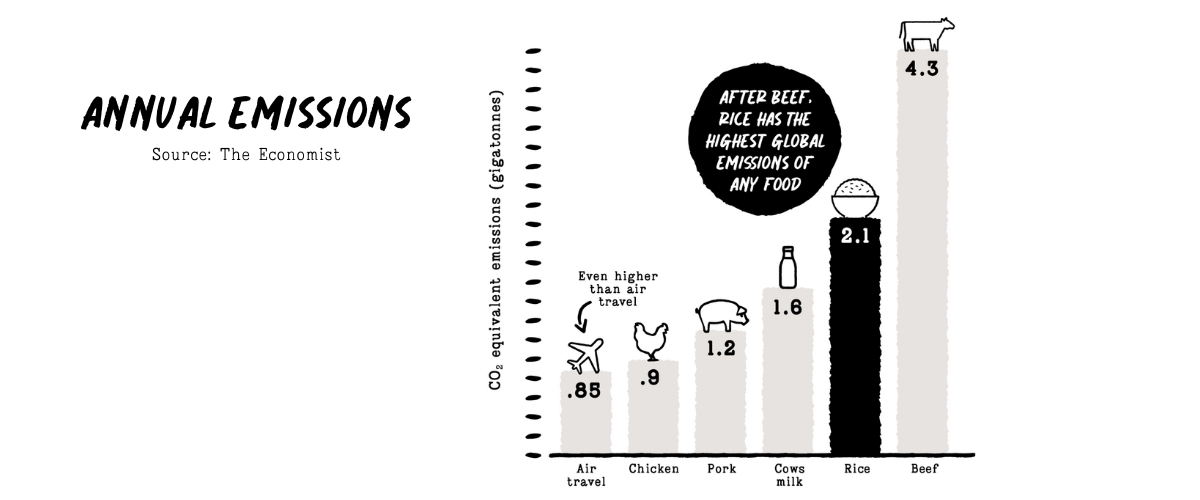
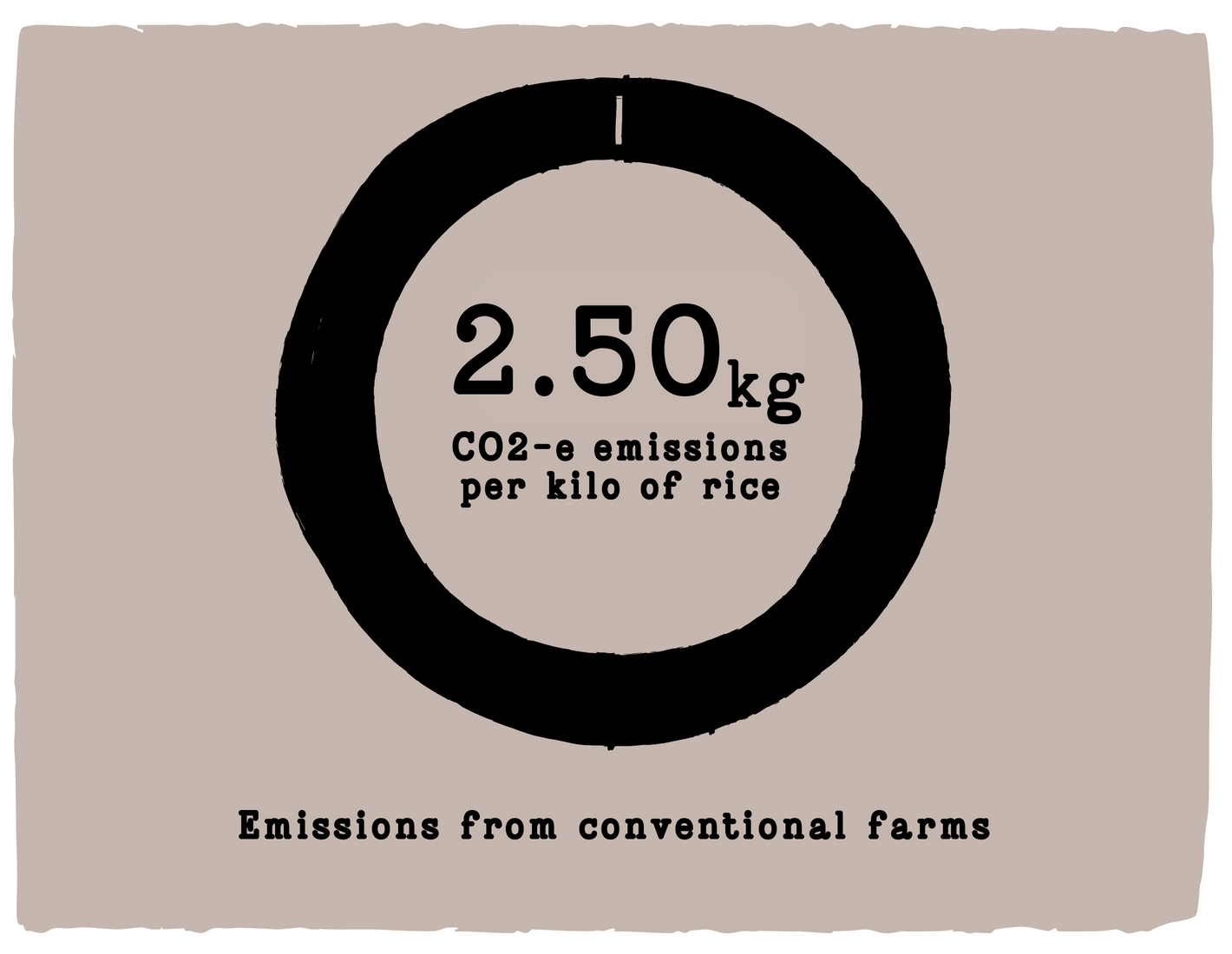
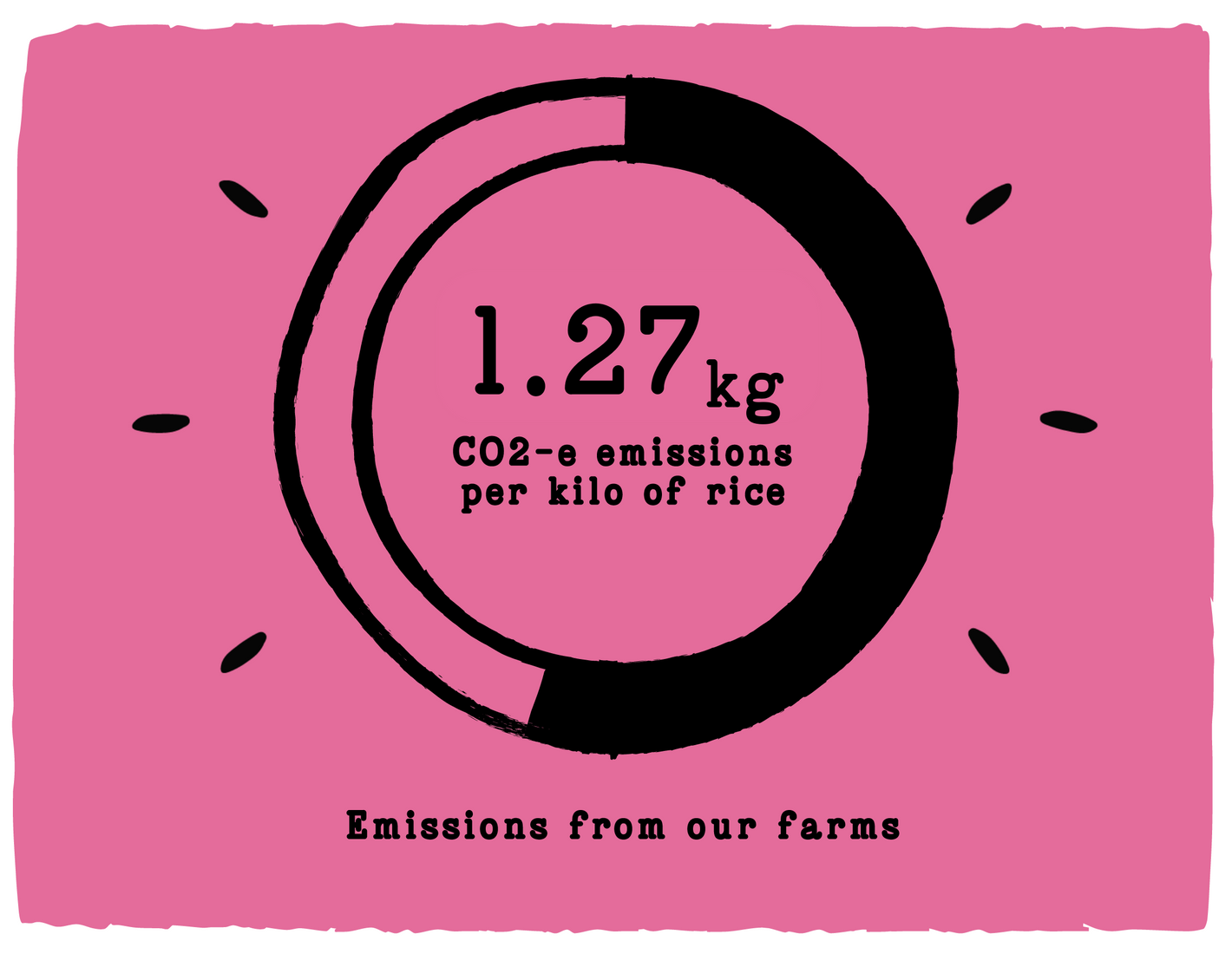
 Want more detail?
Want more detail?
